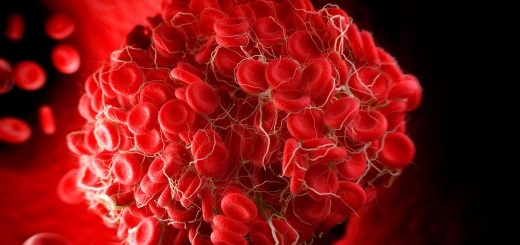4 STIs That Queer Men Should Be Aware of
Health barriers can lead to health challenges, and that’s where the problem lies when you’re a minority and trying to find help. Queer people have unique and complex health needs that their heterosexual and same-sex counterparts do not face. As a queer person, I have an uneasy feeling about going to the doctor, and before I found a doctor I complied with, I rarely went to the hospital.
As queer people, we often shy away from seeking medical attention because we fear the judgment of healthcare providers. I have not gone to a hospital in over 10 years and would treat myself because I am a queer, femme non-binary person of color. So, without further ado, let’s jump into the blog and learn some tips for taking care of your health as a queer man.
1. Hepatitis A

Hepatitis A is a liver infection spread by a virus in poop. The infection is usually spread through contaminated food or drinks or poor hand washing. However, you can also contract hepatitis A through sex, including oral-anal sex (“rimming”) and oral sex after anal sex. MSM with multiple partners is especially at risk.
Symptoms of hepatitis A can occur up to 8 weeks after sex and include fatigue and nausea. Hepatitis A is usually not life-threatening, and most people recover completely within a few months. MSM can avoid contracting hepatitis A by:
- Changing condoms between anal and oral sex
- Not use shared sex toys
- Use latex or non-latex gloves when fingering or fisting
- Washing their hands after sex (buttocks, groin area, and penis even in the shower, if possible)
- go to a sexual health clinic or GUM to find out about the hepatitis A vaccine
- Using a barrier when rimming
If you think you may have hepatitis A, or if you have any questions, contact a sexual health clinic or GUM. The hepatitis A vaccine is available for people traveling to countries where the disease is common.
2. Shigella
This is a bacterial infection of the intestines that causes severe diarrhea and stomach cramps. It is often mistaken for food poisoning. It can be transmitted during sex, including anal-oral sex (“rimming”) and oral sex after anal intercourse. The disease can be transmitted very easily- all it takes is a tiny amount of infected feces entering the mouth.
A person with Shigella can be contagious for up to a month. It can be treated with antibiotics. Men who suspect they have Shigella should get tested at a sexual health clinic or by their primary care doctor. Men can avoid contracting Shigella by washing their hands after sex (including the buttocks, groin area, and penis in the shower, if possible) and changing condoms between anal and oral sex. Using latex or non-latex gloves when fingering or fisting provides protection. And don’t share sex toys or intimate shaving devices.
3. Genital warts

This is a common viral infection caused by the human papillomavirus (HPV). It can cause pinhead-size growths, mostly on or around the head of the penis but also in and around the bottom (anus). It appears a few weeks or months after sex with an infected person. The sooner warts are treated, the easier they are to manage.
You can reduce your risk of getting genital warts by getting the HPV vaccine. You cannot treat genital warts with the same type of cream you use for warts on other parts of your body. A doctor will freeze them or prescribe a cream to remove them. MSM up to and including the age of 45 become eligible for free HPV vaccination on the NHS when they visit sexual health.
4. Pubic lice
Pubic lice (also called “crabs”) are small, parasitic insects that live in the hair of the body. Because they are very small (only 2 mm), they are difficult to see, although you can see their tiny dark eggs stuck to the hair.
Pubic lice prefer the pubic hair around the testicles and buttocks but can also be found in body hair. They are not found on the scalp. The lice are transmitted through close physical contact with an infected person. They can also be transmitted by sharing clothing, towels, or bedding, but this is rare. Symptoms include itching or a rash.
How you can protect yourself

STIs, better known as sexually transmitted infections, are a big problem for queer men. Here are some tips and advice on how to protect yourself from STIs or HIV (Human Immunodeficiency Virus):
- PrEP: Also known as pre-exposure prophylaxis, PrEP is a way for people who are not infected with HIV to prevent infection by taking a single pill every day. It is also used as an HIV treatment along with other medications. Medicines like Truvada can reduce the risk of sexually transmitted HIV infection in people who are at high risk.
- Protection: You should use condoms every time you have sex, especially during anal sex. Use a water-based lubricant during sex, rather than body lotions, oils, or petroleum jelly. One reason is that oil-based lubricants can weaken latex condoms and cause them to break, leading to contracting an STD.
- Get tested: We usually advise not to have unprotected sex until you and your partner(s) have been tested for HIV and other STIs.
Final thoughts
As queer people, we’ve been made to fear the system that’s supposed to help us for far too long, and that’s why we need to take charge of our own lives. It is very important to get tested, and you should do so reasonably often because not everyone is honest about their status. Sound off in the comments section below and tell us what you want to read next and if you want to read more about STIs.




2 Responses
[…] However, some health problems are not considered part of the normal aging process in older adults. Chronic conditions that impair kidney function, lead to cognitive impairment, or otherwise affect the quality of life […]
[…] The LGBT+ communities have been a driving force behind these advances, and with them comes a whole new vocabulary of clarifying identity realities. However, defining one’s gender identity is not always easy. So, without further ado, let’s dive into this blog and learn some of the things you need to know about gender identity. […]